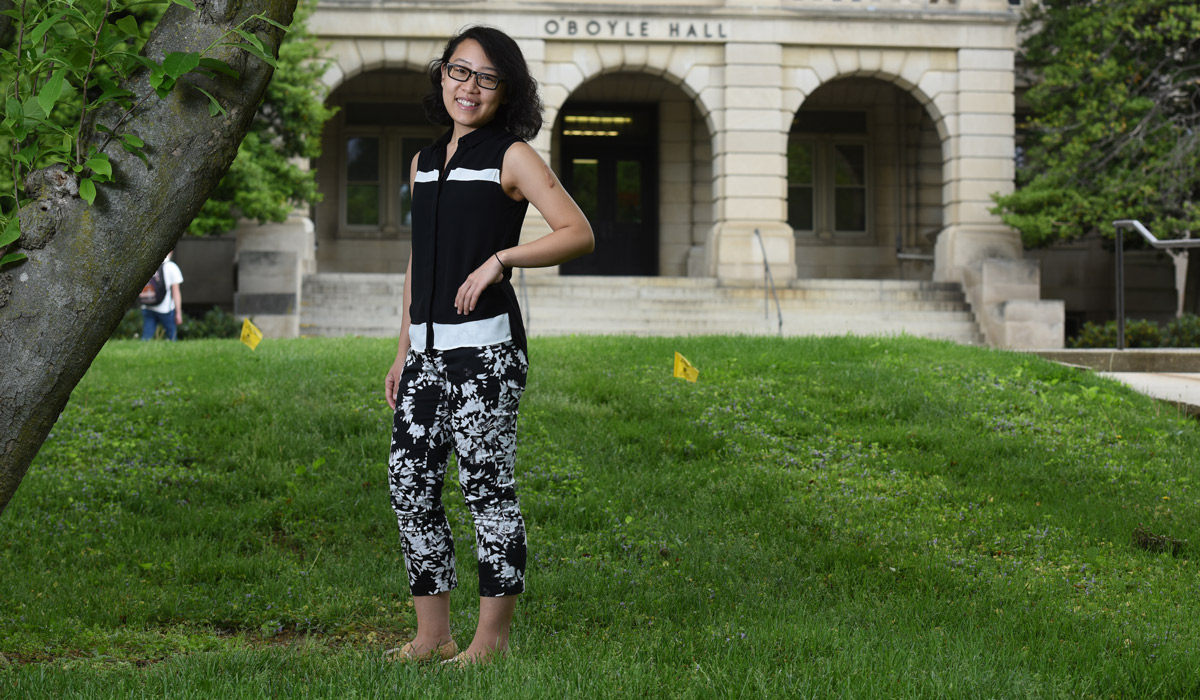

Josephine Au never thought her work in suicide prevention would open the opportunity to connect with fellow mental health professionals in China. But last fall, she boarded a plane as part of a team offering solutions to help curb the suicide crisis in her home country.
“I am very grateful for the opportunity to connect my work in suicide prevention with my Chinese heritage.”
Au, originally from Hong Kong, is a doctoral candidate in clinical psychology at Catholic University. She currently works alongside suicidologist and University Professor David Jobes. Jobes has garnered much attention in recent years for developing the Collaborative Assessment and Management of Suicidality (CAMS), an innovative and flexible approach to treating suicide risk.
CAMS, which focuses on collaboration between the clinician and the client, has become one of the leading intervention tools for treating suicidality. As of today, CAMS has been adopted and studied in more than seven countries, with growing interest from many others.
Au and Jobes were invited by a group of psychologists at Tianjin University to provide a CAMS training for 50 Chinese clinicians, in hope of enhancing the quality of care for suicidal clients. They were thrilled to expand CAMS research to the other side of the globe since it has been largely limited to Western cultures.
“I am very grateful for the opportunity to connect my work in suicide prevention with my Chinese heritage, despite the tremendous pressure I felt facilitating the training and role playing in Mandarin Chinese,” said Au, who considers Mandarin her third language. “Little is known about how suicidality manifests in different cultures, and it is important for us to better understand how a therapeutic framework for suicide developed in America can be adapted to an Eastern culture."
Au was trained in cross-cultural and social psychology during her undergraduate career, but later discovered her interest in suicide prevention while searching for an area within psychology that she is passionate about.
“Suicide is a tragic event that touches so many lives,” she said. “I can envision myself devoting my entire career to this cause.”
Au is one of 30 University doctoral, master’s, and undergraduate students who work in Jobes’ Suicide Prevention Lab, which studies the effectiveness of CAMS on mitigating suicide risk.
She says that she appreciates the humanistic, person-centered approach both in the lab and in the CAMS philosophy. The belief that lives are precious is the underlying principle behind the study of suicidality at the University.
Au plans to earn her doctorate in the next couple of years and then to continue her career in suicide prevention both as a clinician and an academic.